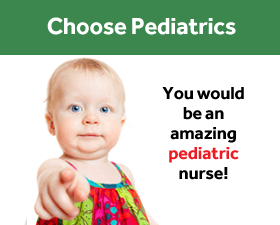Ideas for Pediatric Clinical Experiences
Competition for clinical rotation assignments at children's hospitals or distance from these traditional sites are barriers for undergraduate nursing students who need exposure to valuable pediatric experiences. Barriers can also deter students from pursuing pediatrics and negatively impact a well-rounded clinical education.
In 2011, the IPN and the American Association of Colleges of Nursing surveyed undergraduate nursing faculty, and 344 programs responded. IPN Forum participants reviewed the survey findings and recommended targeting nursing education opportunities where children and adolescents live, learn, and play.
Today, fewer children are admitted to the inpatient unit; however, they are sicker and have more complex illnesses. A large majority of pediatric patients who were once cared for in the hospital setting now receive much, and in many cases, all of their health care in ambulatory care, community, and home settings. - Jean S. Coffey, PhD, APRN, CPNP
Faculty and students seeking alternative sites can use this list to partner with places where children and teens receive nursing care.
Help IPN add to this resource! If you have successfully partnered with nontraditional sites to offer students an in-depth or unique clinical experience in pediatrics, contact ipn@ipedsnursing.org.
Schools
- Get exposure in local public or private schools to a wide range of care from administering medication, managing complex needs of chronically ill children, addressing mental health concerns, and providing health education.
- Also consider private schools/programs for children with special needs/behavioral challenges, and schools run by local boards of developmental disabilities.
Outdoors at Play
Camps
- Support health and well-being for a community of campers from scouting groups to those for children at-risk or with special health needs. Learn more about camp nursing.
Therapeutic riding centers
- Observe and work with children with special needs in equine-assisted activities and therapy.
Debra Kramlich, PhD(c), RN, CCRN, Assistant Professor at University of New England's Department of Nursing, worked to form partnerships with local public schools, a Head Start program, and a therapeutic riding center for equine-assisted activities and therapy. See the poster presentation.
Specialized populations
Home Care
- Learn about medically fragile children transitioning from hospital to home through on-going assessment and care coordination.
Medical daycare
- Learn how to ensure health--and play!--in a daycare environment for children with specialized medical and/or behavioral needs.
Health care programs for children with special needs offices
- Develop skills in screening and care coordination of children and youth ages 0-21 who have or are at risk for special developmental, emotional, physical, mental, or medical needs, as well as transitioning children from hospital to home and from pediatric to adult care for teens and youth. See an example.
- Health care programs for children in foster care: Receive robust exposure to family and caregiver interactions, assessments, abuse detection, care coordination, care for medically fragile children and teens, and disseminating education. See an example.
Early intervention & readiness programs
Birth to 3
- Gain in-depth knowledge of normal vs. delayed development for infants and young children, family-centered care, and tracking health status of children over time. See state listing.
Head Start
- Acquire knowledge about health screenings, monitoring of development, as well as medical and mental health care coordination. Learn more.
Adolescent mothers
- Learn how to provide care for the at-risk pregnant teen as well as post-natal care for both the child and mother for better outcomes. Learn more.
At-risk parents
- Work alongside a visiting nurse to gain experience like the above regardless of parent age. Watch the video below for a description of their work.

